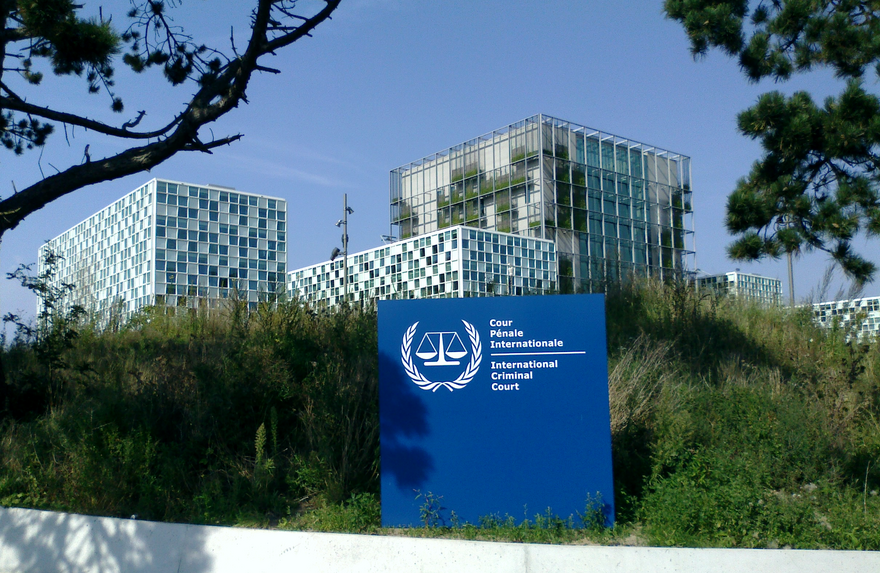25 September 2025, by Dr Emma Brandon and Dr Pablo Gavira Díaz
On 9 September 2025, the confirmation hearing in the case The Prosecutor v. Joseph Kony opened before Pre-Trial Chamber III of the International Criminal Court (ICC or the Court), in the absence of the suspect. This is the first time that the ICC has conducted a confirmation of charges hearing without the suspect present. The hearing lasted from 9 to 11 September 2025 and allowed the Prosecution, the Defence and the Legal Representatives of Victims to make oral submissions before the judges, presenting their arguments on the merits.
In June 2002, Uganda ratified the Rome Statute and, in January 2004, it referred the situation on its territory to the Court. The ICC’s investigations in Uganda have focused on alleged war crimes and crimes against humanity committed in the context of an armed conflict primarily between the Lord’s Resistance Army (LRA) and national authorities, particularly in Northern Uganda, since 1 July 2002 (when the ICC became operational). The purpose of this brief comment is to provide background on the confirmation of charges hearing against Joseph Kony, contextualise the extraordinary nature of holding a confirmation of charges hearing in absentia and discuss potential implications of this novel hearing.
1. Who is Joseph Kony and why is he wanted by the International Criminal Court?
The suspect Joseph Rao Kony is the alleged Commander-in-Chief of the LRA, an armed group carrying out an insurgency against the Government of Uganda and the Ugandan Army, also known as the Uganda People’s Defence Force (UPDF), and local defence units (LDUs) since at least 1987. Over this time, the LRA directed attacks against both the UPDF and LDUs and against civilian populations, engaging in a cycle of violence that included murder, abduction, sexual enslavement, mutilation as well as mass burnings of houses and looting of camp settlements. Civilians, including children, were forcibly recruited as fighters, porters and sex slaves to serve the LRA and to contribute to attacks against the UPDF and civilian communities.
Against this backdrop, the ICC’s investigation formally began in July 2004. Among the alleged crimes under examination are warcrimes, such as murder, cruel treatment of civilians, intentionally directing attacks against civilians, pillaging, inducing rape and the forced enlistment of children. In addition, the investigation covers crimes against humanity, including murder, enslavement, sexual enslavement, rape and other inhumane acts causing serious bodily injury and suffering. This situation prompted Pre-Trial Chamber II to issue five arrest warrants (the ICC’s first-ever warrants) in 2005, targeting senior LRA leaders, namely Joseph Kony, Vincent Otti, Raska Lukwiya, Okot Odhiambo and Dominic Ongwen.
Initially, all suspects were at large. In January 2015, LRA commander Dominic Ongwen surrendered himself to the ICC. In May 2021, Trial Chamber IX sentenced him to 25 years for crimes against humanity and war crimes committed in northern Uganda. Proceedings against Vincent Otti, Raska Lukwiya and Okot Odhiambo were discontinued following their passing. Mr Kony is still at large.
2. What are the procedural steps that the International Criminal Court has followed in respect of Joseph Kony?
The arrest warrant against Mr Kony was issued under seal on 8 July 2005, amended on 27 September 2005 and unsealed on 13 October 2005. According to it, he is suspected of crimes against humanity (murder, attempted murder, enslavement, forced marriage, rape, torture, severe abuse and mistreatment, forced pregnancy and persecution) and war crimes (murder, attempted murder, torture, cruel treatment of civilians, intentionally directing an attack against a civilian population, pillaging, destroying the enemy’s property, rape, sexual slavery, forced pregnancy, conscription of children and the use of children to participate actively in hostilities) allegedly committed in 2003 and 2004 in northern Uganda.
Between November 2023 and October 2024, ICC’s Pre-Trial Chambers II and III, respectively, issued several decisions regarding the confirmation of charges hearing for Mr Kony, including authorising proceedings in absentia and addressing submissions from the parties. Following these procedural steps, Pre-Trial Chamber III scheduled the hearing to begin on 9 September 2025. On 17 April 2025, the ICC Office of the Prosecutor submitted an amended document containing the charges, alleging that Mr Kony is suspected of 39 counts of war crimes and crimes against humanity, allegedly committed in northern Uganda between at least 1 July 2002 until 31 December 2005.
3. What is a confirmation of charges hearing and why is the International Criminal Court proceeding in the absence of suspect Joseph Kony?
A confirmation of charges hearing is not a trial. It is a hearing at which a Pre-Trial Chamber determines whether there are “substantial grounds to believe” that the person committed the alleged crimes and, therefore, that a full trial should take place. This standard is significantly lower than the “beyond reasonable doubt” standard required to convict an accused at trial. At a confirmation of charges hearing, the judges may decide to confirm all the charges, some of the charges or none of the charges. This will determine which, if any, charges are fully examined at trial. The judges may also decide to postpone their final decision to give the Prosecutor more time to either gather more evidence or amend its charges to better reflect the existing evidence (so-called adjournment of the hearing).
One additional key difference between a confirmation of charges hearing and a trial is that a confirmation of charges hearing may, in principle, be held without the suspect present but a trial may only be held if the accused is present. This critical distinction explains the perhaps unexpected situation of the confirmation of charges hearing for Mr Kony being held in his absence.
As this is the first time the ICC has held a confirmation of charges hearing without the presence of the suspect, it is reasonable to ask why the Court has taken this novel step in this case. In the over two decades since the arrest warrant was issued for Mr Kony, there has been unprecedented international cooperation aimed at placing him in the custody of the ICC. Most strikingly, this has included extensive efforts by the United States –a non-State Party to the ICC with an at-times contentious relationship with the Court– to locate and apprehend Mr Kony.
The conviction of Mr Kony’s alleged criminal colleague Mr Ongwen in 2021 was a particular motivating factor behind the decision to seek an in absentia confirmation of charges hearing. This conviction both proved that there was sufficient evidence for many of the crimes that Mr Kony is charged with and provided an opportunity for some victims of the LRA’s crimes to be heard and receive reparations. Because only those who were victims of crimes committed by Mr Ongwen as a commander within the LRA could be part of the trial against him, a large number of victims of other LRA crimes wondered why they still had to wait for justice. The Legal Representative of Victims emphasised this point in his oral submissions during the hearing with reference to the fact that the Ongwen case only included victims abducted and recruited into his brigade – leaving out thousands in other LRA brigades.
4. What are the implications of the confirmation of charges hearing against Joseph Kony for the International Criminal Court?
Even with this extensive decades-long effort to find Mr Kony and take him under arrest, he remains at large, and the victims of his alleged crimes have had no opportunity for accountability. In this context, the ICC Prosecutor asked the Court’s judges to hold a confirmation of charges hearing in absentia to give victims an opportunity to be heard on the global stage. An additional goal of these proceedings is to remind the international community of the need to locate and detain Mr Kony given the scale of his alleged crimes and the decades that have passed since the issuance of his arrest warrant.
In addition to the important impact on victims of Mr Kony’s alleged crimes, this confirmation of charges hearing is likely to serve as a proving ground for similar future efforts for other suspects who have remained at large for extended periods of time. Many observers of the ICC have remarked that the Court’s most insurmountable obstacle has been a lack of assistance from states, particularly in the apprehension of suspects. The Court’s website currently lists 29 accused persons as at large and in need of assistance to take into custody.
On the potential role of in absentia proceedings at the ICC, Professor Dr Christoph Safferling, Director of the Nuremberg Academy, said that “the in absentia confirmation of charges hearing for Joseph Kony will be a test of whether such a hearing can provide some modicum of justice and accountability for the victims”. Director Safferling adds that proceedings in the absence of an accused “are no stranger to international criminal law”, referring to the cases of Martin Bormann before the International Military Tribunal and the Ayyash et al case before the Special Tribunal for Lebanon. However, he clarifies that Mr Kony’s procedural status has not reached the trial phase yet, “and, even if the charges are confirmed against him, Article 63(1) of the Rome Statute precludes the possibility of in absentia trials – and rightly so”.
Director Safferling further states that the Nuremberg trials “were in many respects an extraordinary experiment, but their lasting lesson is that bringing those responsible for the most atrocious crimes before a court of law is vital to maintain its credibility and effectiveness and, above all, to meet the demands of those who suffered from such horrific offenses: the victims”. He concludes by noting that the pursuit of justice for Mr Kony might offer hope to those who endured his brutality but warns that “the ICC’s current efforts may ultimately prove futile” if the accused fails to appear. (eb/pg)



